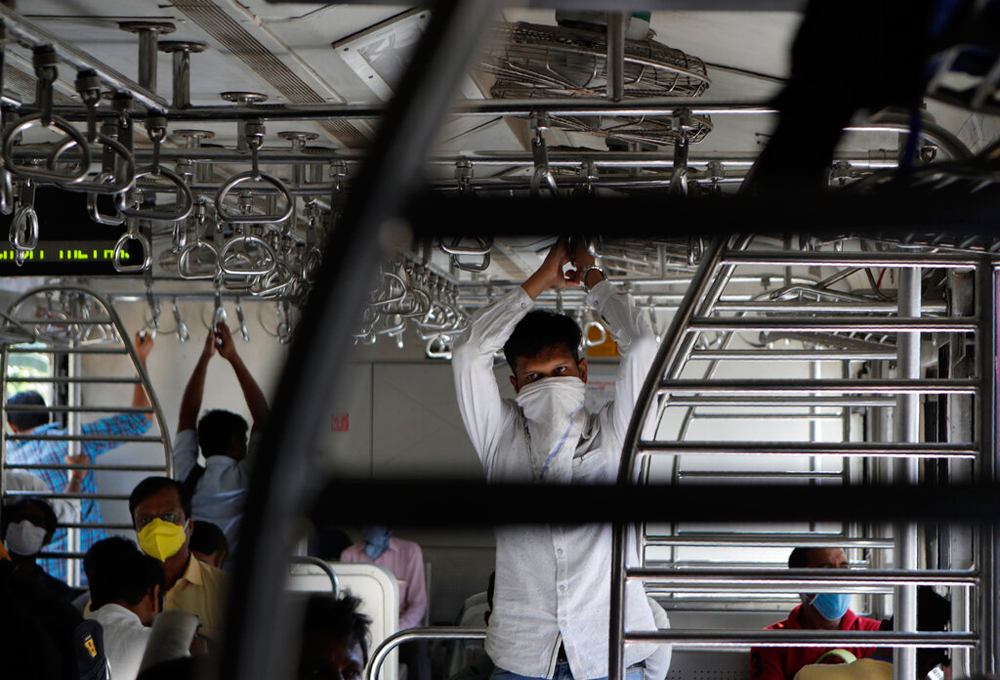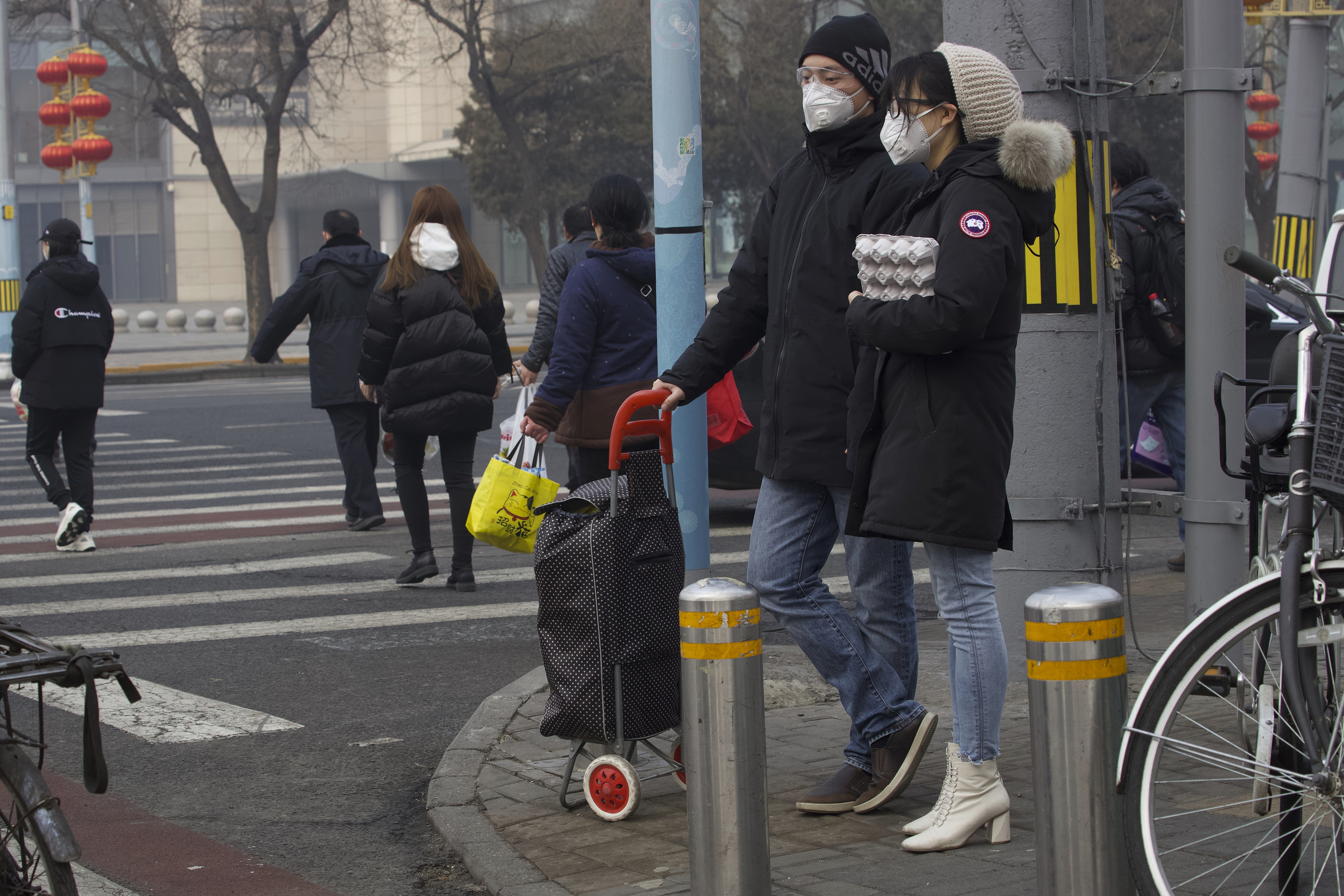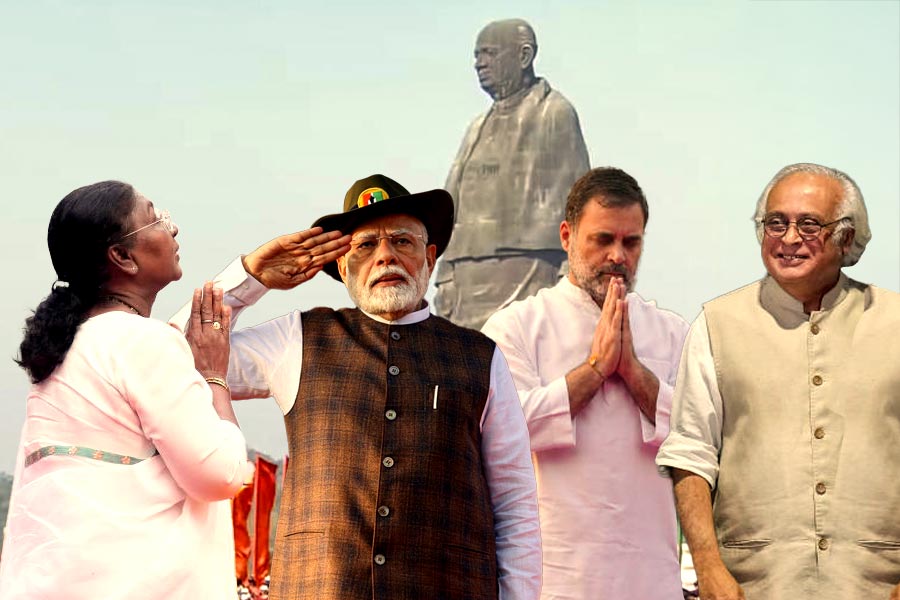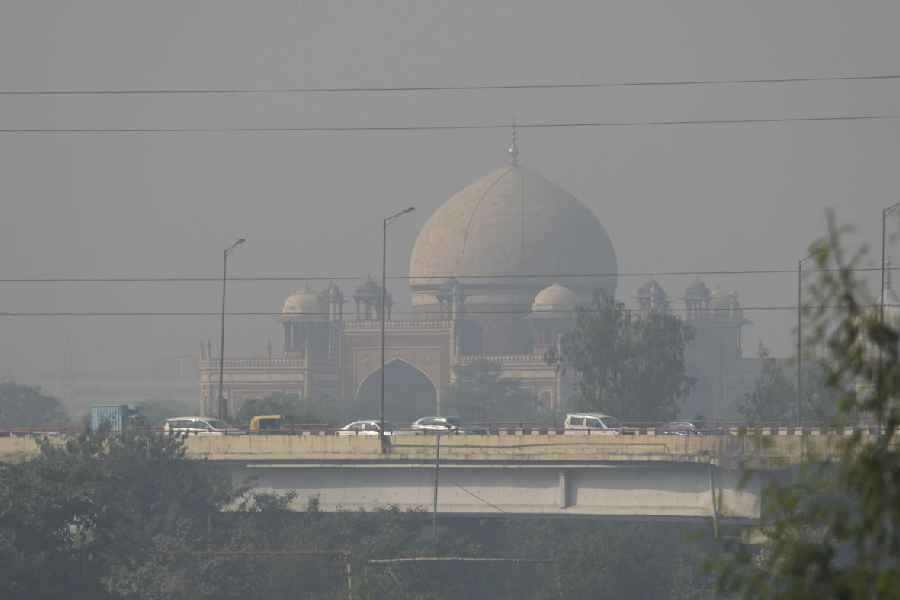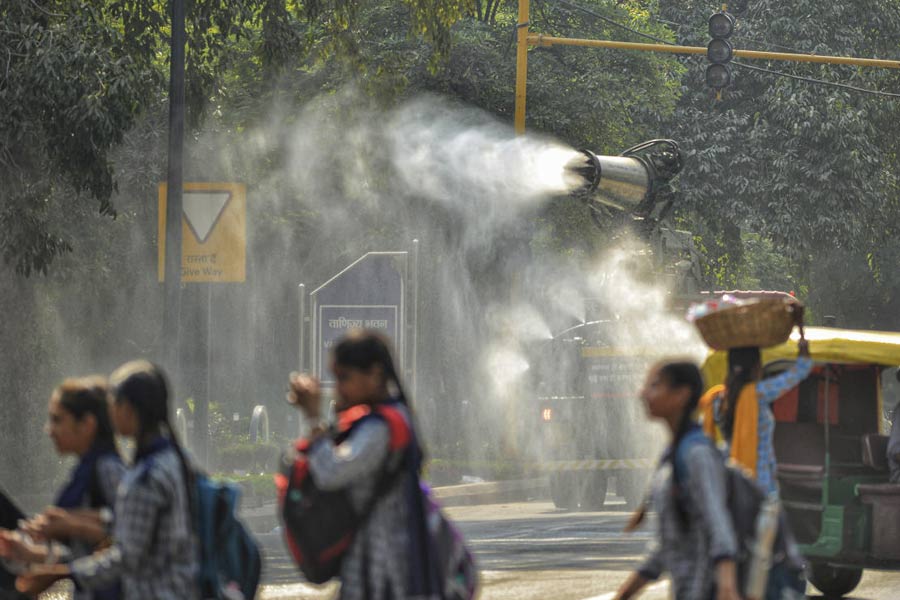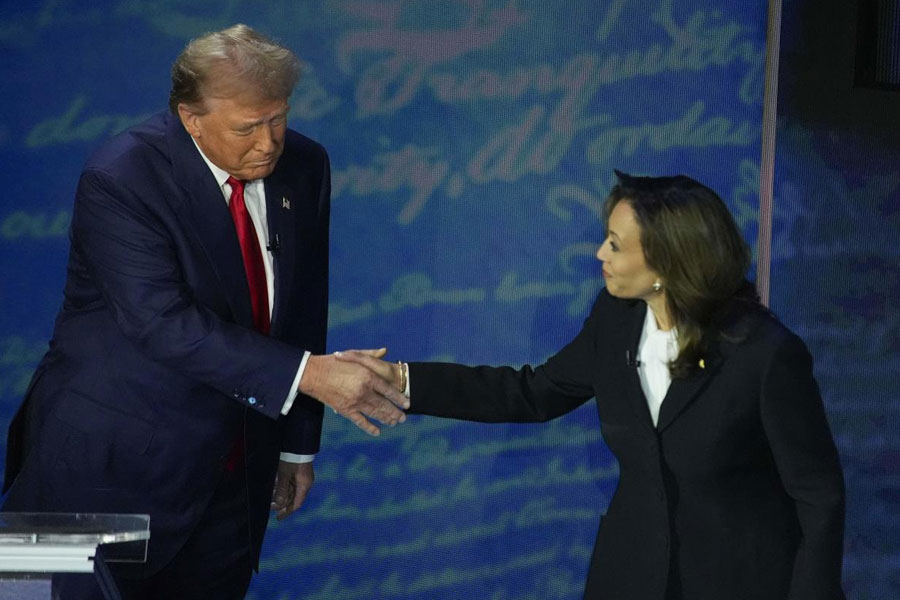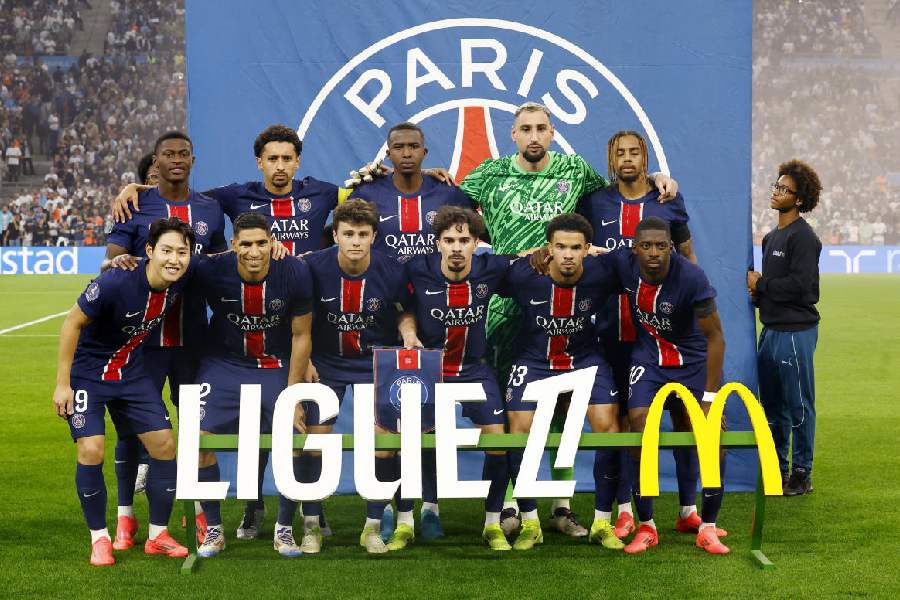Each week, The Spectator, arguably the most politically delightful weekly publication from London, publishes a column, ‘Ancient and Modern’, that tries to detect parallels between contemporary life and classical Greece and Rome. This week, as the United Kingdom went into lockdown in its fight against the Covid-19 pandemic, the column drew a parallel with the plague that struck Athens in the summer of 430 BC, raged for two years, and killed a third of the city’s population.
Citing the account left behind by the historian, Thucydides, the column noted: “The plague was so deadly… that it soon became clear that no one would live long enough to pay a price for their behaviour. Time-honoured funerary practices were ignored — any private family pyre would do for cremating a corpse — and immediate pleasure became the priority. Since no fear of gods or law was any constraint and the impious and pious suffered without distinction, the social fabric of the Athenian world began to crumble. The life of honour was no longer a goal, and the aim was to get as much enjoyment out of life as everyone could in the time available to them.”
The column concluded with an understated warning: “… if an Athenian-style plague is just around the corner… modern medicine will be helpless, the social consequences terrifying and global warming totally forgotten.”
Despite the grim seriousness of a pandemic that (until Tuesday afternoon) has affected 179,111 people around the world — a little under half of that number is in China — and led to 7,426 deaths, it is still too early to be fearful of the end of civilization as we know it. Although few doubt that the global economic consequences of the pandemic will be severe and could warrant a world-scale repair job, there is as yet no realistic fear that society will degenerate into lawlessness and anarchy, as people try and survive at any cost.
As of today, the social fabric of societies that have been seriously affected — both in the East and the West— have held. In China, where regimented deterrence was most easily managed, the sealing of Wuhan has not resulted in social turbulence. On the contrary, Beijing’s short-term success in preventing the pandemic completely overwhelming the country has prompted the government to boast of the efficacy of its totalitarian system. Even if citizens have been disquieted by its government’s initial denial and slow response, these voices are either muted or suppressed.
This is certainly not the case in Europe where the coronavirus has generated panic, most visible in the empty shelves of supermarkets. Yet, while the report of a man — ironically of Indian origin — being robbed of his shopping of generous quantities of toilet paper invokes mirth, there is, as yet, no fear that there will be mass hysteria. The lockdown of northern Italy, for example, has taken place without too much fuss — given the scale of the operation — and the forecasts of deaths running into hundreds of thousands appear to have been taken with some scepticism. There is a nagging belief that the dislocation of daily life is a temporary inconvenience and that sooner rather than later the best minds will find the wonder drug that will save the world. What else can explain the angry reaction of UK Hospitality — a trade body for the hospitality industry — over the advice to the public by the UK prime minister, Boris Johnson, to stay away from pubs, theatres and restaurants to prevent any potential spread of the coronavirus. That businesses on both sides of the Atlantic were eagerly awaiting government subsidies and tax cuts to cushion them from anticipated losses suggests that the tremors from the pandemic are perceived to be temporary in nature.
In August 1914, when the first shots of World War I were fired, it was largely believed that the conflict would be over by Christmas. The Great War lasted for more than four horrible years and produced revolutions and other social upheavals. As of now, no one can be sure how long the exceptional situation produced by the pandemic will last. Many countries have set either March 31 or April 15 as the last date for restrictions on travel or for the closure of schools and other institutions. The belief is that the spread of the virus will be flattened by then by using a combination of shutdowns and social distancing — the newest buzzword that turns individuals and families into self-contained islands. Policymakers have taken heart from the examples of Hong Kong, Singapore and Taiwan where life is slowly crawling back to normal. In India, there is also a belief that the approaching hot weather will kill off the coronavirus.
The belief, alas, is based on what may be called optimism of the will. There is, as yet, no firm indication that the pandemic will be contained in the next 30 days and at what cost. This may be why the social distancing prescription has led to concerns of a social and political upheaval whose contours are unknown. At the political level, for example, there is speculation that the need to restrict movements of people will see the inevitable demise of globalization as societies and countries look inwards for self-preservation. When the Samajwadi Party’s Ram Gopal Yadav said in the Rajya Sabha that the pandemic was largely an urban phenomenon and that rural society in India had its own corrective systems that included ayurveda, he was greeted with some cosmopolitan disdain. However, even if Yadav’s imagery is over-localized, his larger prescription of greater self-contained populations relying on traditional knowledge may not be entirely far-fetched. The belief that the coronavirus pandemic has resulted from a departure from traditional ways of living may also explain why the popularity of traditional cures, from amulets to urine therapy, have not receded despite the ridicule heaped on such approaches.
At the social level, the recourse to social distancing could have traumatic consequences. First, there is the impact on the elderly who are thought to be the most vulnerable to infection. For them, isolation from families, especially grandchildren, could be very emotionally unsettling. Secondly, the short-term shift away from offices to working at home may seem a welcome change to many. However, in the West particularly, the office is not merely a place of work, it is also at the centre of social life which doesn’t exist in transient homes. If social distancing is to persist for longer than now anticipated, it is certain to leave large numbers of individuals psychologically traumatized. This is more so in the case of what is referred to as the ‘snowflake’ generation whose outlook to life is excessively precious.
For the moment, these concerns have touched India peripherally — a reason why there are so many different (and colourful) approaches to the pandemic. With only 150-plus cases of coronavirus — small percentage of the global total — detected so far, the temptation to be apparently unconcerned — as the Shaheen Bagh protesters are — or leverage it for narrow political ends has been irresistible. The draconian travel orders have so far affected a very thin slice of the population and the thrust is to avoid panic at all costs but be prepared to cushion some of the adverse global fallouts on the economy. In the short run, the global concern may boost Narendra Modi’s local reputation as a leader who had anticipated the need for Swachch Bharat. Beyond this, however, it is all fanciful speculation.
Covid-19 has made informed forecasting impossible. We can hope for the best, without any idea of what could be the worst.

